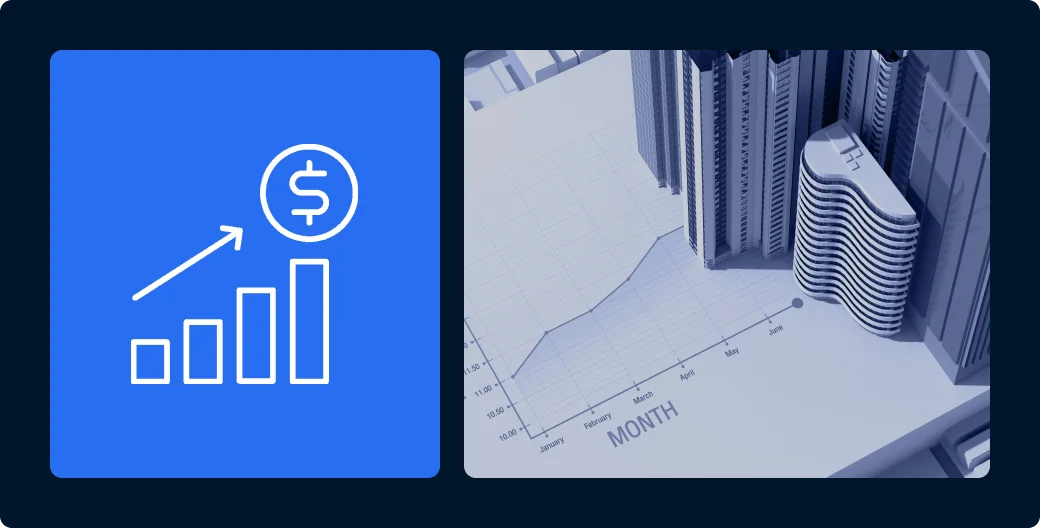Real estate investment firms are turning to outsourced fund administration to free up resources and focus on their core business. As portfolios grow, firms need to dedicate more time to sourcing deals, managing properties, and optimizing returns.
The traditional fund administration outsourcing option seems like a potential solution, but you’d lose control over your proprietary data and processes. Enter fund administration co-sourcing, which provides a middle-ground option.
Co-sourcing is a new operating model that combines in-house and outsourced fund management elements. This approach is gaining popularity due to its ability to offer the benefits of outsourcing while maintaining control over data.
What is co-sourcing fund administration?
Co-sourcing fund administration provides a third alternative to traditional insourcing models, where you handle everything in-house or full outsourcing, which often means giving up control of your data.
Co-sourcing fund administration provides a third alternative to traditional models. Handling everything in-house can be cumbersome and manual, consuming valuable resources. Full outsourcing often means giving up control of your data. Co-sourcing offers a hybrid approach, addressing the drawbacks of both traditional approaches.
This method provides help through a fund administration company that handles your accounting, reporting, and compliance tasks. The difference is that the fund administrators execute the accounting and reporting workflows directly inside your existing investor management software platform, like Agora.
With co-sourcing, you don’t have to relinquish control of your data. Instead, you gain all the benefits of third-party fund administration services while maintaining oversight. This approach allows you to meet your business needs efficiently while focusing on your core competencies.
Traditional fund administration models
Commercial real estate investment firms have typically had two options for accounting and reporting:
In-house administration
Most GPs start with handling accounting and reporting internally. But as they grow, this becomes challenging due to:
- Increased complexity: Managing portfolios with various asset classes, investor types, and geographic markets introduces complex transactions and specialized reporting needs. As a result, your workload increases substantially, demanding more of your team’s time and resources.
- Resource constraints: Limited staff and expertise to manage growing LP reporting, accounting, and tax regulations demands.
- Operational inefficiencies: Time-consuming manual processes like accounting data entry and tax reporting that detract from core investment activities.
Even with all those issues, many fund managers still want to handle administration in-house. That way, they can keep important data safely within their organization and have full control over it.
Outsourcing administration
Outsourcing administration involves having third-party fund administrators handle back-office processes. This approach certainly frees fund managers from administrative tasks, allowing them to focus on core investment activities. But, it also limits their direct access to their data.
GPs put a lot of work into creating investments, finding investors, and building relationships. So, handing all that information over to an outside party can be risky for them. The potential downsides include:
- Loss of control: Copies of your data now live in a third-party system, which eliminates your control and governance over highly sensitive trade secrets and intellectual property.
- Security risks: There is increased vulnerability to third-party data breaches and compromises, which continue to escalate, with a 77% rise in incidents from 2022 to 2023.
- Investor concerns: If data is housed outside the fund’s ecosystem, you may lose investor trust and transparency.
Co-sourcing: A hybrid model for fund administration
Co-sourcing provides a middle ground. Instead of handing over data to third parties, fund administrators manage back-office operations directly within the client’s own investment management platform. This allows GPs to maintain full control over proprietary data while still leveraging the expertise and resources of external administration providers operating inside their systems.
The co-sourced approach delivers the optimal combination of outsourced operational efficiency and strong data governance and security.
Key benefits of co-sourcing
This new model helps real estate investment firms address key middle office challenges and gain a competitive advantage by:
Data management simplification
- Eliminate shadow accounting: Co-sourcing eliminates the need for shadow accounting, where GPs maintain separate internal records alongside the administrator’s books. With administrators working inside your platform, you both operate off the same general ledger – no more duplicating data entry or reconciling mismatched records.
- Streamlined data flow: With administrators working inside your systems, data entry and updates follow one seamless process, verifying consistency across the fund’s entire lifecycle.
- Unified data: This centralized approach avoids the hassles of transferring data between separate systems, reducing the risks of discrepancies, data loss, and unnecessary reconciliation work.
Flexibility and control
With a co-sourced model, fund managers maintain complete ownership and governance over their proprietary data and processes within their existing systems. GPs never have to give up control over their valuable intellectual property and information assets to third parties.
This new approach also provides outstanding flexibility to adapt fund administration as needs evolve. If your firm is rapidly expanding, shifting strategies, or managing changes in investor requirements, the integrated administrative support can quickly scale and pivot to support these scenarios.
Enhanced relationships and opportunities
- Investor focus: Co-sourcing the back-office admin work lets GPs spend more time building stronger relationships with their investors. With investor portals and dashboards, LPs can quickly see performance data themselves. GPs can give investors the transparency and reporting they want quickly and easily instead of scrambling to combine it internally or waiting on a third-party fund administrator.
- Process insights: Since the co-source provider works inside your existing investment management platform, administrators gain better insights into processes, strengths, and potential areas for optimization.
- Competitive advantage: Co-sourced administration gives your commercial real estate fund a competitive advantage by meeting the high demands for data security and investor transparency.
Why is co-sourcing gaining popularity?
Co-sourcing is becoming a popular solution because it tackles the big challenges you’re facing head-on:
- Increased regulations require capturing and reporting more detailed data points.
- More stakeholders like investors, auditors, and compliance teams require access to your fund data.
- The administrative burden continues to increase as funds grow in complexity, size, and the number of investment strategies they must manage.
- Investors are raising the bar, expecting increased transparency and more detailed reporting than ever before.
Maintaining a unified view that meets all these demands is difficult with your data spread across internal systems and third-party administrators. Keeping data accurate and timely reporting can be a struggle, especially as competition heats up.
Co-sourcing addresses these challenges by centralized data in your own systems while reducing the burden of back-office processes.
Technological solutions for co-sourcing
Having the right technological platform is crucial for successfully implementing co-sourcing. Systems like Agora’s Fund Accounting software offer integrated solutions that verify data accuracy and streamline workflows, making them ideal for co-sourcing arrangements.
This collaboration allows GPs to use a single platform that streamlines their operations and makes them more efficient. And the even better news? You don’t have to give up control over your data.
Conclusion
The co-sourced fund administration model allows investment firms to use third-party back-office expertise while keeping control of data and processes. By having middle office administrators work inside your systems, you get expert support without giving up ownership of proprietary information.
When supported by the right integrated technology, this approach improves efficiency while allowing data governance. The future of fund administration requires a balance between leveraging outside expertise and maintaining data control. Co-sourcing is a modern approach to achieve this goal.










